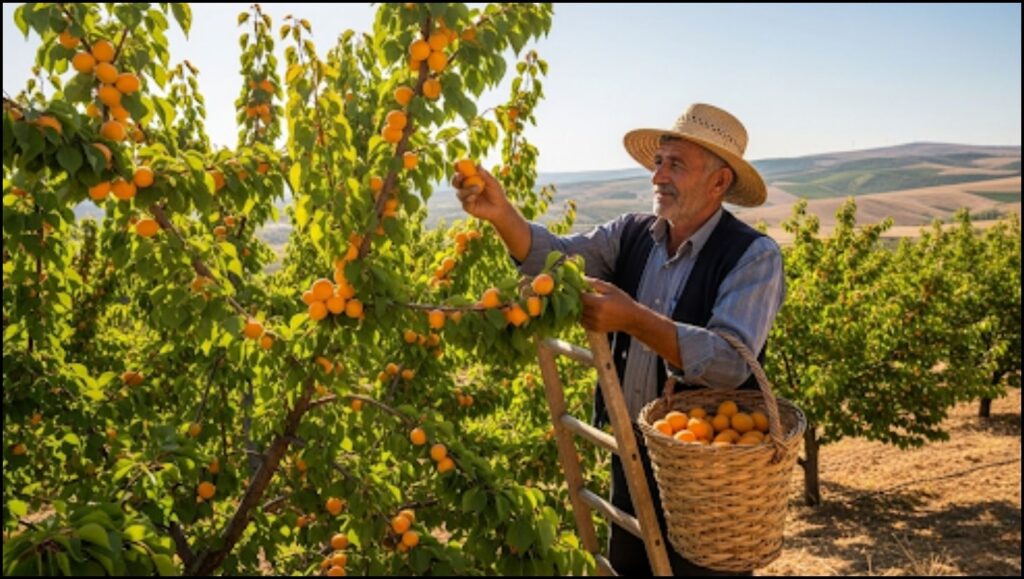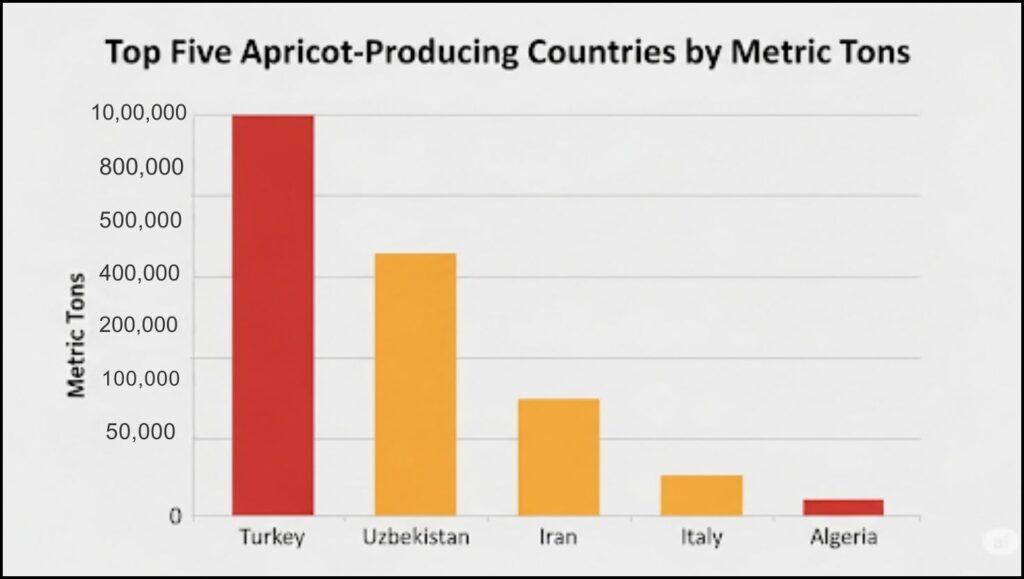Turkey has solidified its position as the largest apricot producer worldwide, a role it has held for decades, driven by its unique geography and a long-standing agricultural tradition. The country’s production is a cornerstone of the global market, with a particularly strong hold on the dried apricot trade. This agricultural dominance is primarily centered in the eastern province of Malatya, an area so integral to apricot farming that it is often referred to as the “Apricot Capital of the World.”

Recent data from the Food and Agriculture Organization (FAO) of the United Nations and national agricultural reports indicate that Turkey’s annual apricot harvest consistently exceeds 800,000 metric tons. This impressive output gives it a market share of over 20% of the world’s total production. While other nations like Uzbekistan, Iran, and Italy are significant players, none have been able to match Turkey’s scale and export prowess, especially in the high-value dried fruit segment.
The Economic and Cultural Significance of Turkish Apricots
The apricot industry is more than just a source of fruit for Turkey; it is a critical component of the national economy and a deep-rooted cultural symbol. The fruit is a major export commodity, bringing in hundreds of millions of dollars annually and providing livelihoods for tens of thousands of farmers and workers. The Malatya region alone is responsible for an estimated 85% of the world’s dried apricot supply.
The country’s success is built on optimal growing conditions. Apricot trees thrive in regions with hot, dry summers and cold, frosty winters, a climate pattern prevalent across much of Turkey. This allows the fruit to develop its characteristic rich flavor and high sugar content, which are ideal for both fresh consumption and the traditional sun-drying process.
Malatya: The Heart of Apricot Production
Malatya’s reputation is built on centuries of horticultural expertise. The farmers here have perfected techniques for cultivation, harvesting, and processing. The region’s unique microclimate, characterized by high altitude and intense sun, is particularly suited for sun-drying apricots without the need for artificial preservatives. This traditional method contributes to the apricots’ distinctive taste and texture, which are highly prized by global consumers.
“Apricot farming is not just a business; it’s a way of life passed down through generations in Malatya,” said Dr. Arda Yılmaz, a professor of agricultural economics at Ankara University. “The skill and knowledge of these farmers, combined with the ideal climate, create a product that is globally unmatched. This is why Turkey’s apricots have earned a Protected Geographical Indication status, a mark of their exceptional quality.”
While the dried apricot trade is where Turkey’s dominance is most pronounced, the country also exports a significant amount of fresh apricots. However, it faces stiff competition in the fresh fruit market from countries like Spain and Italy, which benefit from proximity and established logistics networks for quick distribution to major European markets.
The Global Apricot Market: Key Players and Emerging Trends
The global market for apricots, valued in the billions of dollars, is a complex ecosystem with multiple key players. While Turkey leads in total production, its primary focus on dried apricots creates distinct market segments.

Uzbekistan has emerged as the second-largest producer, with a focus on both fresh and dried varieties. The Central Asian nation has seen its output grow significantly in recent years, fueled by government-backed agricultural reforms and an increasing focus on international exports. Iran, with its long history of apricot cultivation, remains a major contributor, particularly to Middle Eastern markets.
In Europe, Italy and Spain are the top producers and exporters of fresh apricots. Their strategic location allows for rapid delivery of fresh, delicate fruit to consumer markets across the continent. This highlights a key division in the global apricot trade: Turkey and Central Asian nations dominate the dried fruit market, while Mediterranean countries lead the fresh fruit trade.
Challenges and Future Outlook
The apricot industry is not without its challenges. Climate change, which can lead to unpredictable weather patterns, poses a significant threat. Early spring frosts, in particular, can decimate apricot blossoms and severely reduce a year’s harvest, impacting farmer livelihoods and global prices.
Water management is another pressing issue, particularly in arid regions where irrigation is essential. Sustainable farming practices and the development of more resilient apricot varieties are becoming increasingly important for the industry’s long-term viability.
The market for apricots is also evolving. As global health consciousness rises, there is growing demand for organic and naturally-processed apricots. This trend presents an opportunity for countries like Turkey, where traditional, chemical-free methods are already a standard practice. Experts believe that a focus on branding and marketing these natural qualities could further strengthen Turkey’s grip on the global apricot market in the coming years.
Unveiling the Pulasan Fruit Powerhouse: Malaysia Emerges as Leading Producer
